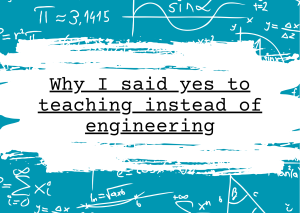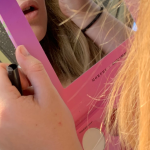This is the first article in a series on human rights. Keep an eye on our website and socials for the rest of the articles.
Trigger warning: there are mentions of violence (and worse) here.

You’d think, by 2024, we’d agree on human rights. You’d think, by 2024, we’d be mature enough to realise everyone is equal. And you’d think, by 2024, that we wouldn’t be standing by while genocides are occurring. Yet here we are, in 2024. The world is a flaming pile of garbage. Literally, did you see the ocean is on FIRE?
We sit here in Australia, bathed in privilege, ignorant of what is happening around us. Now, I could start preaching about how we need to be educated on world issues, or I could just tell you where to begin.
The United Nations Convention on the Prevention and Punishment of the Crime of Genocide – the convention that’s actually used in international law to prosecute offenders – defines genocide in Article II.
“In the present Convention, genocide means any of the following acts committed with intent to destroy, in whole or in part, a national, ethnical, racial or religious group, as such:
(a) Killing members of the group;
(b) Causing serious bodily or mental harm to members of the group;
(c) Deliberately inflicting on the group conditions of life calculated to bring about its physical destruction in whole or in part;
(d) Imposing measures intended to prevent births within the group;
(e) Forcibly transferring children of the group to another group.”
153 States have ratified or acceded the Genocide Convention – meaning these States commit to preventing and punishing genocide. Though some countries are yet to sign the Convention, general customary international law prohibits genocide – meaning, whether you’ve signed the Convention or not, you’re breaching international law if you commit genocide. Fair call, I reckon.
A country that has notably not signed the Genocide Convention is Indonesia. And, shocker, they’re committing a silent genocide just a stone’s throw away from us, in West Papua.
In a Berlin-esque situation, the main island of Papua New Guinea is split down the middle. West Papua is separated from the rest of the country. This split dates all the way back to the colonial era, when the Dutch claimed the western side of the island for themselves, as well as Indonesia – not cool, bro. When Indonesia gained independence from the Dutch in 1949, West Papua didn’t join them, and they remained a Dutch colony for another decade. Then came December 1961, when the West Papuans declared independence and raised the Morning Star flag for the first time. They had finally reclaimed their right to self-determination.
However, in the eyes of the UN, that wasn’t the case. To prevent West Papua from being “driven into the arms of the Soviets” (thanks, National Security Advisor Rostow), the US, UN, Netherlands, and Indonesia brokered a deal – with West Papuan delegates nowhere in sight. The deal they made? That the UN would temporarily control West Papua, pass over control to Indonesia, and, almost as an afterthought, eventually West Papua would gain their right to self-determination.
Fast forward a few years under Indonesian control, and West Papuans were finally (allegedly) getting their say. Indonesia, under supervision of the UN, held a plebiscite in 1969 to give the public a choice of whether they wanted to remain under Indonesian control. The catch? The whole thing was rigged. A mere 1,025 people (out of West Papua’s population of 4 million) were ‘selected’ by the Indonesian military to vote in the plebiscite. And when I say selected, I mean threatened and beat into submission. The result was a (not at all shocking) unanimous “yes” for remaining under Indonesian control. This whole ordeal has become colloquially named the “Act of No Choice” by the West Papuan people – the day when their right to self-determination was ripped from them, and the illegal occupation by Indonesia began.
Since then, the conditions for West Papuans have become abysmal. Multiple Human Rights Watch reports have found several cases of war crimes, human rights violations, and abuses of civil, economic, social, and cultural rights committed against West Papuan civilians. The Indonesian military have a chokehold on the territory and are abusing their power to the best of their abilities. They’re torturing, raping, and killing innocent people. Over 500,000 people have been killed by the Indonesian military during their occupation.
A 2016 report by Brisbane’s Catholic Justice and Peace Commission of the Archdiocese found that Indonesia is committing a “slow motion genocide”. They found proof of massacres, bombings, torture and more. The Indonesian military have targeted all major figures within West Papua calling for freedom. But it’s not just that.
The Indonesian government has essentially forced out all international aid agencies. Red Cross – gone. Peace Brigades International – gone. Cordaid – gone. West Papuans can’t get help. There’s a total media blackout too – so those who would help can’t, not just because of borders, but because they don’t know this genocide is even happening. Journalists who do get in are often tortured or killed.
It’s not as if there’s no push back though. The “Free West Papua Movement” has been functioning for decades. There are multiple liberation armies within the territory, and 83 nations have even called for the UN Human Rights Commissioner to visit West Papua.
Australia isn’t one of them. The silence is deafening.
Our government has close ties to Indonesia. Too close. Just ask our Department of Foreign Affairs and Trade. I mean, they’re the ones who said that Indonesia is “one of Australia’s most important bilateral relationships.” I know I certainly love having a close relationship with a country committing genocide.
It’s just lovely.







